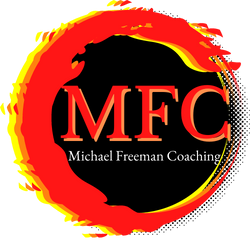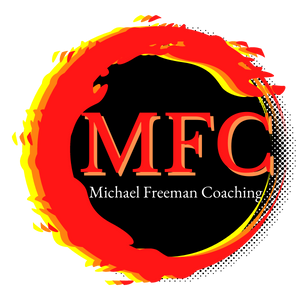The Secret to unlocking your career using your job, even if you hate the work you do
It's no secret that working a job sucks.
A job, even by definition, seems to defeating. The definition states, "a job is a paid position of regular employment."
A career is much, much different.
Your career is how you identify your skills, talents, and hopefully your purpose.
Even better if your career also describes your passions.
Like most things, your mindset is the difference in how you perceive your job or career.
So, how do most people make the mental shift from this is my job to this is my career?
Here are a few ways I’ve seen people make the jump:
Massive career setback
Finding passionate work within the work that you do. Allowing for a smooth transitional change.
Mentorship or career coaching.
Does Your Job Engagement Matter?
Employee engagement matters because post people correlate their job and career as the same, but knowing that 66% of employees are disengaged at work, it's easy to see that most people are also miserable in their careers. If you would like to check out the article that discusses this, you can find it here
Engagement is quantified by understanding the basic needs of a given group of employees within a defined area.
By popular employee opinion, employees are disengaged, but does this automatically mean that people have to dislike or feel disengaged in their careers?
What if you don't know where to start?
Follow these steps and examples to discover the type of career that gives you purpose and meaning.
1) Know what you like to do.
If you want a career you are proud of, then the work you do in your career must consist of activities you genuinely enjoy.
Personal Example
I discovered that I love leading others because I prided myself on paying more attention to the people I led than those I reported.
Early in my career, I observed that the vast majority of managers I worked for lacked the necessary understanding of empathy and human behavior.
They did not motivate or inspire but instead dictated without explanation.
I was pissed off daily, making it difficult to be engaged.
Then a mentor changed my perspective and coached me to become an example of outstanding leadership instead of the person complaining and waiting for change to happen for me.
The journey to becoming a leader, attaining that status, and practicing leadership became who I was.
2.) Gain all of the experiences!
The above example demonstrated many fundamental principles I've discussed in this article. Still, I want you to pay attention to the fact that I was open to a new experience that I did not plan on taking.
If you don't know what you like, then experience more.
Experiences will lead to enjoyment.
I did not plan on building a career as a leader and eventually a coach. I planned to become a pilot, make a ton of money, and hopefully work only a third of the month while traveling everywhere.
I love flying but dislike traveling in commercial airplanes and sitting still for long periods. I followed my aviation path until I understood what I enjoyed and did not enjoy about the potential industry.
At the same time, I became a leader and followed that path that led me here.
3) Focus on learning
There is always something to learn. What makes people masters in their craft is the ability to stay interested in getting better. Learning more. Paying close attention to the small things, the details.
The moment one decides they know enough is when they lose a step, and the career moves on without them.
Shifting Your Mindset about Your Job/Career
I was lucky enough to find a smooth transition from employee to the leader to coach. In my experience, I see this very little which makes the idea of working in a career that you love a much larger step than those in that lucky category. This is where I see having a coach becomes useful.
As a coach that helps people develop careers that matter, but most people do not have a coach, so here in place of that, I'll offer you that perspective I provide to help you shift your mindset in a way that can help you see the how the things you do at work could help build the foundation for your career.
1) Humans have an inherently difficult time separating current feelings from long-term benefits.
Envision what your perfect career will look like, and note what skills you need to possess to be a master in that career.
Then separately list the skills you will develop through the tasks you currently do at work.
Circle the tasks that produce the skills you will need in your dream career. These are the items that will help you build it.
2) When frustrated or disengaged, we struggle to see gratitude in our current opportunities.
The key here is to remember that your engagement is a choice. So make that choice consciously. If you are clear on where you're going and follow the first step, you will better understand how you're getting there and will find what once frustrated you is less frustrating.
When you feel frustrated, treat this feeling as a trigger to redirect your focus on what you are grateful for in the grander vision of your career aspirations.
3) People struggle with personal responsibility, and in this case, the responsibility to find happiness every day.
No one owes it to you to make your day great. Only you can do that for yourself. Every challenge, obstacle, or setback happens to you or for you. Only you can make that choice. The challenges of your job could be the exact things that create your career.
What if you have been in your job forever and feel it's too late to switch?
Too late is an opinion, not a fact.
The end is the end of your life, and you likely have no idea when that is.
Additionally, whatever job you have had for the last few years has often taught you many translatable skills you can utilize in any new career path.
I spent six years training to become a pilot, and at the surface, flying a plane is not translatable without actually flying a plane.
But I learned a great many things from this experience.
For example:
The benefits of checklists
Situational Awareness
How to scan the environment for details
The benefits of processes
Study skills
In some way, shape, or form, these skills have benefited me in my career as a leader and coach.
Create your skill acquisition plan
1) Consider the skills you have obtained in your current job or career.
Make a list of them.
2) Then, consider the skills you will need in the career you are dreaming of working towards.
Make a list of those.
3) Circle the overlaps!
4) Make a plan to work on the remainder of the skills you will need.
5) Don't wait to be perfect at everything. Get what you want right now!
This plan has helped many I have coached in the Grand Rapids, Michigan area, and I am confident it will help you.
If, however, you are the type of person that could use accountability, then reach out to me, and we can set up a plan to help you bridge the gap to where you want to be.
If you’d like to know more about skill building then check out this article:
5 Foundational steps to gaining skills for your big goals
What Do Career Coaches Do?
In researching what many career coaching websites offer, I found that few coaches focus on established working individuals. You will find:
resume building
Resume writing
Job industry coaching
Maybe some help in interviewing or job positioning.
Are you on the verge of losing it at work because you’re tired of being frustrated with your company’s lack of understanding when it comes to your needs as an employee?

